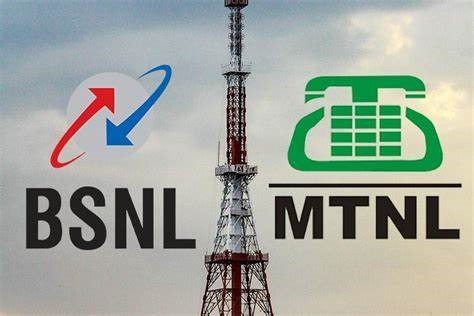Letter by Shri E A S Sarma, Former Secretary to the Government of India to Cabinet Secretary, Government of India

To
Shri T V Somanathan
Cabinet Secretary
Dear Shri Somanathan,
A few months ago, your predecessor seemed to have “pulled up” BSNL/MTNL for being “lax” in monetising their land assets as per the diktat of DIPAM.
I wonder whether the Cabinet Secretariat is aware of the illegality of privatising BSNL/MTNL’s lands, originally acquired for them by the States under the erstwhile land acquisition legislation on the premise that such acquisition was for a “public purpose”, defined in Section 3(f)(iv) of that legislation to imply that the lands so acquired were meant exclusively for companies wholly owned/controlled by the government. In other words, the lands now in the possession of BSNL/MTNL thus acquired, cannot be alienated in any manner to a private entity. If that is the case, how can your office coerce BSNL/MTNL or, for that matter, any CPSE, to alienate such lands to private parties? It is prima facie illegal. I believe that the Cabinet Secretariat should not willingly become a party to such an illegality.
I am surprised that DIPAM should unilaterally decide on monetisation of land assets, keeping the States in the dark, ignoring the fact that it was the States that invoked their “eminent domain” authority to acquire those lands in the first instance. Would it not violate the spirit of federalism that lies at the core of our Constitution?
Further, I understand that BSNL is also being pressured to lease out thousands of its towers and long stretches of its fibre optic network to its competitors on terms not necessarily advantageous to itself, granting the latter an undue benefit at its cost (https://www.firstpost.com/business/corporate-business/reliance-jio-bsnl-ink-tower-sharing-deal-1986257.html). In my view, this amounts to a serious impropriety that needs to be enquired into.
In addition, instead of entrusting BSNL with the responsibility of providing connectivity in remote areas with the backing of the Universal Service Obligation Fund, the Department of Telecommunications (DOT) has evidently chosen to assign that responsibility to its private competitors, suggesting an undue bias in favour of private telecom operators (https://telecom.economictimes.indiatimes.com/news/contracts-to-jio-sheer-favouritism-bsnl-employees-group/76671853)
The recent signing of a contract with the Tatas by BSNL also seems to benefit the former more than the latter (https://aifap.org.in/11970/). It looks as though the DOT, instead of going to the help of BSNL in a forthright manner, is progressively driving BSNL into the hands of private entities.
After appropriating valuable 5G spectrum bands with little competition, the private telecom service providers unilaterally hiked up tariffs by 20-25% without any questions being asked either by the DOT or by TRAI. Such an unconscionable increase in tariffs has allowed those private telecom service providers to earn huge profits at the cost of millions of helpless customers.
The National Telecom Policy envisaged the setting up of a Telecom Ombudsman but no tangible action has yet been taken (https://dot.gov.in/sites/default/files/National%20Digital%20Communications%20Policy-2018.pdf?download=1). As on date, there is no effective arrangement to regulate telecom tariffs and safeguard the interests of the customers. In this matter, TRAI has remained inactive for reasons best known to it.
In particular, the National Telecom Policy envisaged the strengthening of telecom PSUs like BSNL and MTNL but the manner in which DOT has been brazenly promoting the interests of private telecom service providers runs counter to that. Strengthening the two telecom CPSEs, BSNL and MTNL, would introduce the much needed competition in the telecom sector and it could go a long way towards protecting the interests of the customers. Had the government cared for upholding the interests of the customers, it would have gone all out to extend budgetary support for reviving BSNL/MTNL without any reservations.
When the government has had no hesitation whatsoever to extend huge open-ended subsidies to profit-earning private companies, including a foreign company like Micrton, in the guise of PLI and PLI-like schemes, there is no justification for it not to extend budgetary support for reviving strategic CPSEs like BSNL, MTNL and RINL.
The justification put forward by DOT, DIPAM and the Ministry of Finance that CPSEs could raise resources by monetising their assets is inherently flawed, since the meagre resources that CPSEs can generate by under-selling their assets to private entities do not constitute an additionality to fiscal resources of the government, as the same resources can be generated by the government on far more advantageous terms by borrowing from the same pool of savings in the economy which private entities tap. By forcing CPSEs to monetise their assets on less advantageous terms, the government should know that it would also be forcing them to lose their ownership and control over those assets for no justifiable reason.
Against this background, it is evident that the manner in which DOT, DIPAM and the Ministry of Finance have gone about, openly favouring a few profiteering private telecom service providers at the cost of BSNL/MTNL, the telecom customers and the public at large is a matter that involves serious illegalities and improprieties, which need to be subject to an independent enquiry so that the concerns expressed above may be subject to a wider discussion and debate in the Parliament and among the public.
Regards,
Yours sincerely,
E A S Sarma
Former Secretary to the Government of India
Visakhapatnam
